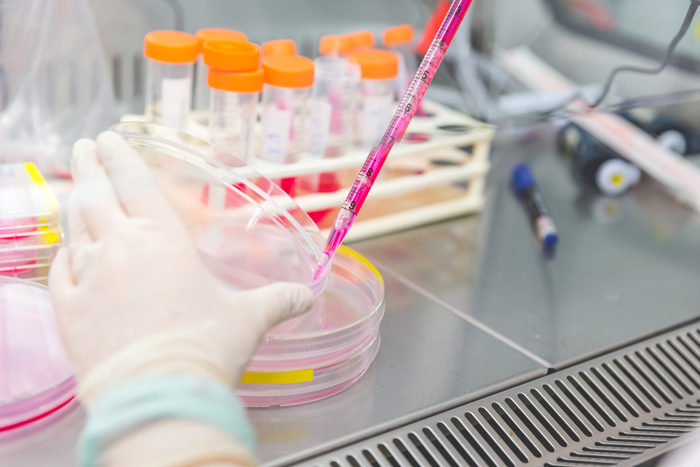After 20 years of study, the largest longitudinal study to date has concluded that children born by assisted reproduction with no genetic link to either of their parents —whether by egg or semen (gamete) donation, or by surrogacy— have the same levels of well-being and similar relationships with their families as those gestated naturally.
It also suggests that adjustment is better if parents disclose their biological origins to children around the age of seven rather than later or not at all.
The publication, reviewed by peers and included this Thursday in the journal
Developmental Psychology
, confirms the conclusions of six previous installments in a continuous follow-up that began at one year of life and continued at 2, 3, 7, 10, 14 and, finally, 20. During these two decades, he observed the development of 117 families through standardized questionnaires to the parents and, if ethically possible, also to the children —65 born after sperm, egg or surrogate donation, and 52 naturally—, to see if the lack of a genetic link could somehow alter emotional development.
The researchers found no significant differences between them throughout their development or upon reaching adulthood (20 years, in this case).
"Despite people's concerns, families with children born through third-party assisted reproduction live well into adulthood," said study director Susan Golombok, a professor emeritus at Family Research and former director of the Center for Family Research at the University of Cambridge.
One of the objectives of the research was to find out if in these cases of assisted reproduction there were problems similar to those that occur more frequently in adoptions, in which "parents face specific challenges when their children reach adolescence."
“More conflict has been found between adoptive parents and adopted adolescents than between non-adoptive parents and non-adopted adolescents.
Furthermore, poor communication about adoption has been associated with more negative relationships between adoptive parents and their children.
One of the reasons why this happens, reasons Montse Lapastora, director of Psicoveritas (an office specializing in the subject), is that when the child acquires abstract thinking and understands what it means to be adopted, "they also understand that there is a family that he has previously abandoned it”, and this sometimes translates into “aggressiveness”.
This does not occur, according to the new research, in children born by assisted reproduction with genetic material from third parties.
However, the conclusions are not final.
Despite complying with good quality standards, the researchers themselves recognize that the sample is small as one of their weaknesses.
Gloria Bellido, a psychologist specializing in childhood and member of the Spanish Society of Clinical Psychology-ANPIR, believes that although it is an "interesting" analysis, it has a small number of families and that to draw more solid conclusions it will be necessary to rely on meta-analyses (which include many investigations).
“This is still a study carried out under very specific conditions, such as being limited to one country: the United Kingdom”, she qualifies.
Another of the limitations that this professional analyzes is that over the years some twenty families have fallen out of the investigation (something normal in investigations that are so long), most of which refused to reveal their origins to the child.
The publication itself shows that telling it or not, and when, can be important for the well-being of the child, so if these families that failed to answer the questionnaire were included, the result could be different.
“What gives us interesting information in order to help these children is the part that concludes that knowing your origins is important for mental health, something that we also see in the clinic.
Intra-family secrets are something very pernicious, and in families where there is clear communication, the mental health of children and adults is favored ”, she points out.
"My father is my father and my mother is my mother"
The publication includes reflections by young people about their biological origins, something that usually does not concern them.
"It doesn't faze me, people are born different ways and if I was born a little different, that's okay, I understand," says one.
“My father is my father, my mother is my mother, I have never thought that it is not like that, I really do not care,” says another.
Some even claimed to feel special: “I think it was amazing, that everything is absolutely amazing.
I have nothing negative to say about it at all."
Again, it must be taken into account that the opinion of the children who knew their origins could only be obtained.
Among study participants who did not drop out, only 42% of those who received sperm donation disclosed it before the age of 20, compared to 88% of those who donated eggs and 100% of those gestated by surrogacy. .
Small differences were found between the first two.
Egg donation recipient mothers reported less positive family relationships than sperm donation recipients.
The researchers suggest that this could be due to the insecurities of some mothers about the absence of a genetic connection to their child.
But this was not reflected in their children's perceptions of the quality of family relationships.
Those who received sperm donation, however, reported poorer family communication than those conceived by egg donation.
“This could be explained by the greater secrecy surrounding sperm donation than egg donation, sometimes driven by a greater reluctance of fathers than mothers to reveal to their children that they are not their genetic parents, and less predisposition to talk about it once they have revealed it, “says the study.
Regarding surrogacy, according to Bellido, "the discussion has to do with the mental health of [pregnant] mothers much, much more than that of their children."
Subscribe to continue reading
Read without limits
Keep reading
I'm already a subscriber




/cloudfront-eu-central-1.images.arcpublishing.com/prisa/LQOQ6LFOPZBTVE43JXJXDOFLPU.jpg)



